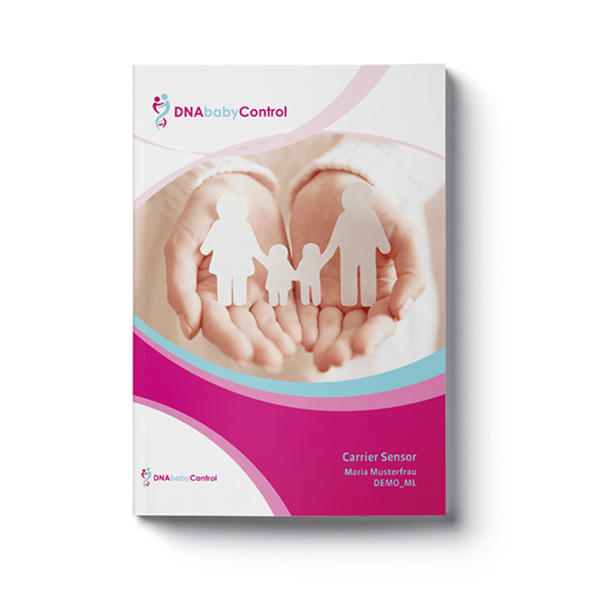Carrier Sensor
The Carrier Sensor provides information on whether there is a risk of handing down diseases to the children.
Out of stock
How genetic defects cause diseases
The human genome contains about 25,000 different genes, which include all relevant information of the genome. However, unfortunately, parts of the genome may be defective.
If this is the case, these genetic defects can trigger diseases that the children themselves may then inherit.
Not every carrier of a genetic defect is ill
Genetic defects do not always necessarily lead to the fact that the person concerned is actually ill. Often a person appears to be completely healthy or at best has mild symptoms, even though he or she carries the genetic defect responsible for a particular disease.
However, the hereditary disease, in this case, may occur in the child, and the child may have to suffer from the consequences for the rest of his or her life. To determine the individual risk, a genetic analysis to determine the carrier status for common hereditary diseases can help.
How the Carrier Sensor works
For our Carrier Sensor, our laboratory comprehensively analyzes the sample sent in. In total, more than 4,000 genetic markers in more than 100 genes are examined.
In this way, we can determine the carrier status of future parents for more than 170 hereditary metabolic diseases and identify possible risks for the planned offspring.
After successful analysis, we prepare a comprehensive written evaluation summarizing the test results. In this report, we clearly describe the diseases for which the parents have corresponding genetic defects.
The Carrier Sensor can thus be used to identify the risk of hereditary diseases in children reliably, and the information obtained can be taken into account in family planning.
The Carrier Sensor at a glance:
- Analysis of more than 4,000 genetic markers in over 100 genes
- Verification of the carrier status of around 170 known hereditary diseases
- Optional report possible for both partners
- Reliable examination by our laboratory
- A comprehensive evaluation of test results
- Individual risk assessment based on the results


